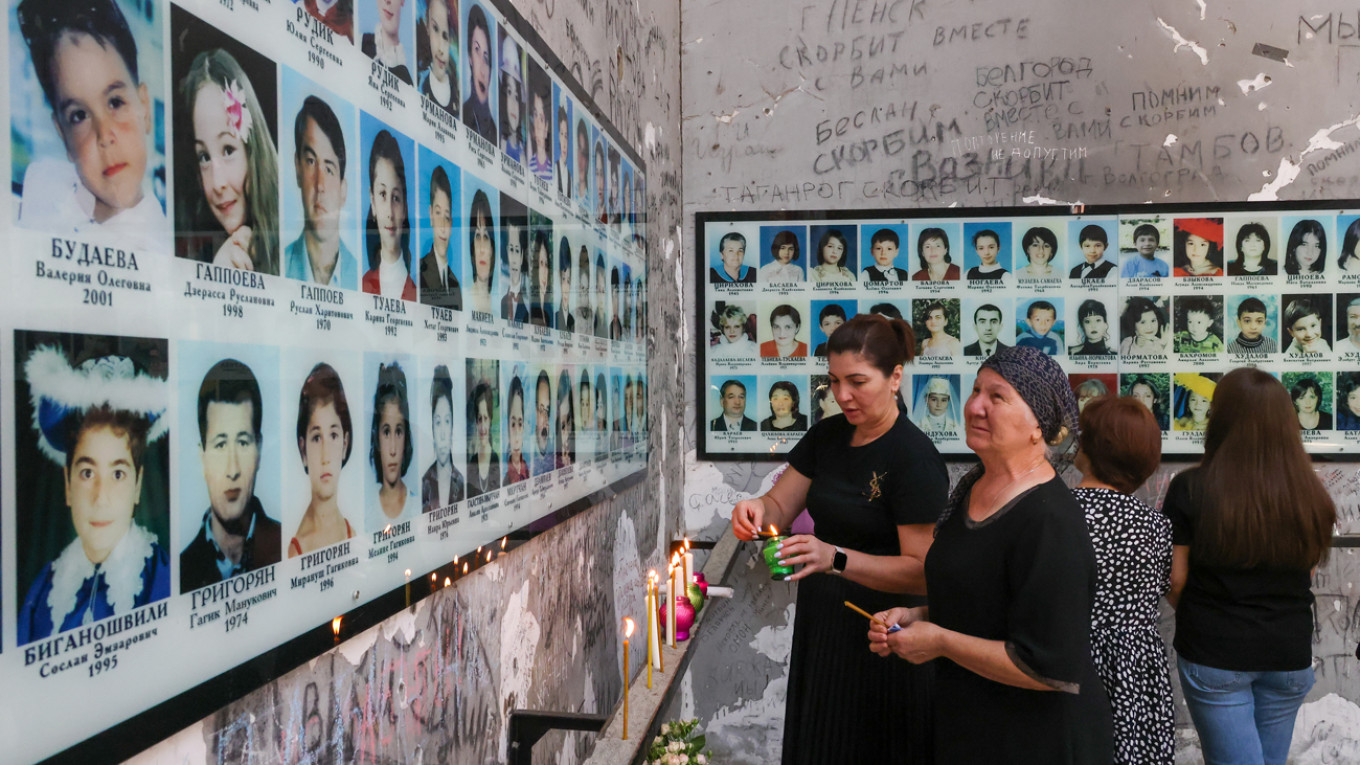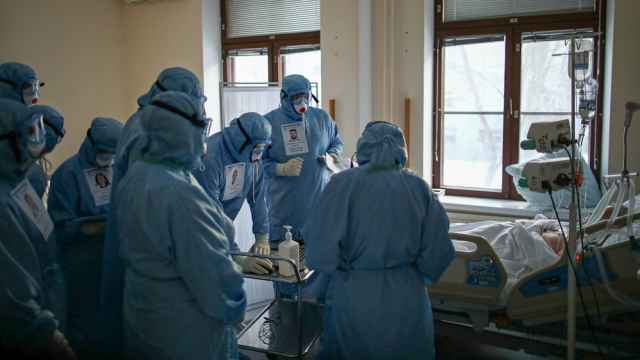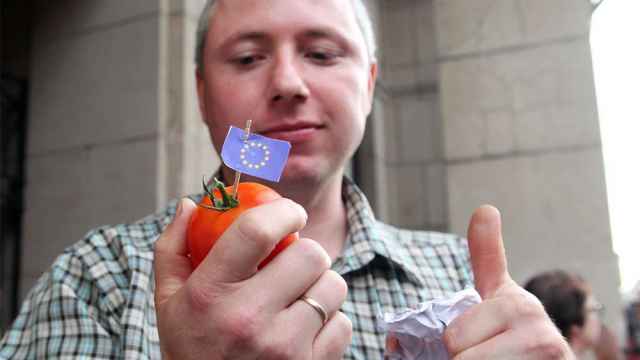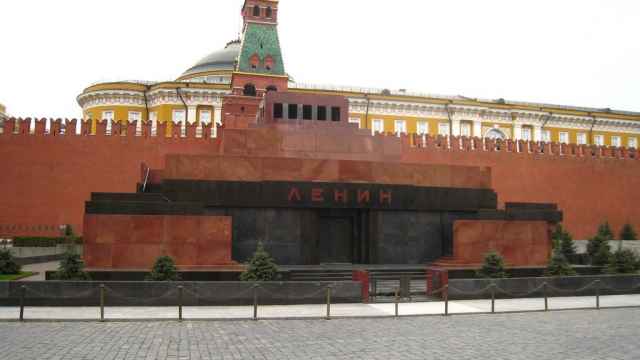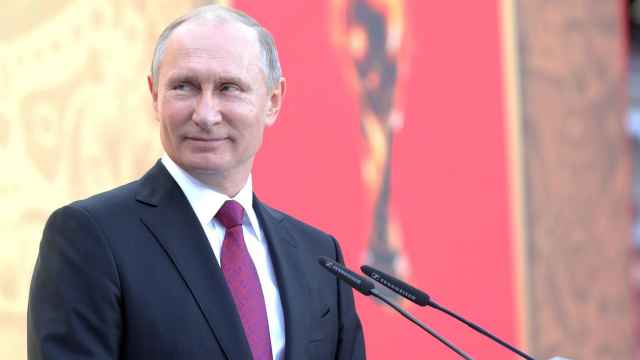The share of Russians who believe that authorities did everything they could to save the hostages in the Beslan school tragedy has reached its highest level in a decade, according to a new survey by the independent Levada Center pollster.
On Sept. 1, 2004, militants from Chechnya took over 1,100 civilians hostage at Beslan School No. 1 in Russia’s North Ossetia, demanding the withdrawal of Russian forces from Chechnya. More than 330 people, including 186 children, ultimately lost their lives.
The tragedy sparked widespread scrutiny of the Russian authorities’ response, particularly the security forces’ storming of the school on Sept. 3 as well as the tense negotiations with the militants that failed.
But ahead of the siege’s 20th anniversary, 67% of Russian respondents told Levada that authorities did all that was possible to save the Beslan hostages — the highest percentage in a decade.
According to Levada, respondents most likely to say that the authorities did everything possible to save the hostages include those with higher education (70%), those who believe Russia is heading in the right direction (75%), those who approve of President Vladimir Putin’s actions (71%) and those who trust television as a source of information (75%).
Those less likely to say that the authorities did everything possible included respondents under 24 years old (57%), those who believe the country is heading in the wrong direction (49%), those who disapprove of Putin’s actions (38%) and those who trust information from YouTube channels (57%).
About half of respondents who know about the siege (53%) believe that the hostages’ deaths were caused by the terrorists’ actions, Levada said.
At least 7% of respondents believe the high death toll among the hostages was due to mistakes made by special forces, while about a third blame both the terrorists and the special forces.
Russia’s authorities appear to be deliberately working to shape public opinion regarding Beslan, Levada Director Denis Volkov told the Agentstvo news outlet.
“The visit itself fits into the overall trend of the state’s work with historical memory,” Volkov said, adding that the country’s authorities seem to “promote the idea that everything possible was done.”
At a memorial event in central Moscow on Monday, attendees placed flowers at the Beslan monument and released white balloons in memory of those who lost their lives 20 years ago.
The European Court of Human Rights (ECHR) said in a 2017 ruling that the Russian government failed to act on evidence of a likely attack and used “indiscriminate force” that contributed to the casualties among the hostages.
The ECHR also ruled that Russian authorities had information about the planned attack and failed not only to prevent it but to strengthen security or warn the public.
During a meeting with President Vladimir Putin last month, the Mothers of Beslan group voiced frustration that the investigation into the school siege is still ongoing, Aneta Gadiyeva, co-chair of the group, told Agentstvo, but that part of their meeting was not broadcast on state television.
According to Gadiyeva, Putin responded by saying he was unaware of the investigation’s status and would ask the head of the Investigative Committee, which probes major crimes, to get involved.
An open letter published Sunday by Ella Kesayeva, who lost several relatives in the siege and has been an outspoken critic of the official investigator, called on five Russian generals involved in the Beslan operation to answer the many allegations.
“You are above the law, as if there was no Beslan, and for 15 years you are living in peace and respect,” the letter said. “Tell us who ordered you to use deadly weapons on the school.”
A Message from The Moscow Times:
Dear readers,
We are facing unprecedented challenges. Russia's Prosecutor General's Office has designated The Moscow Times as an "undesirable" organization, criminalizing our work and putting our staff at risk of prosecution. This follows our earlier unjust labeling as a "foreign agent."
These actions are direct attempts to silence independent journalism in Russia. The authorities claim our work "discredits the decisions of the Russian leadership." We see things differently: we strive to provide accurate, unbiased reporting on Russia.
We, the journalists of The Moscow Times, refuse to be silenced. But to continue our work, we need your help.
Your support, no matter how small, makes a world of difference. If you can, please support us monthly starting from just $2. It's quick to set up, and every contribution makes a significant impact.
By supporting The Moscow Times, you're defending open, independent journalism in the face of repression. Thank you for standing with us.
Remind me later.



